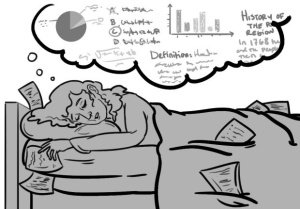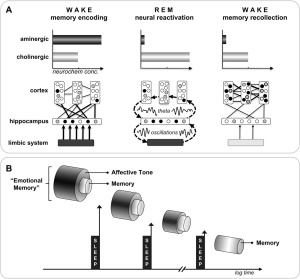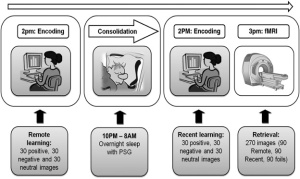
Sleep, is potentially one of the most important things in our lives. According to John Hopkins’ website we spend around a quarter to a third of our life sleeping. If you’re a person like me, who wishes there was more hours in the day. It seems like a lot of time wasted or that could be used else where. With 8 hours being the recommendation obviously it must be important that we do get proper sleep. Yet, what is really happening during this time that makes it more valuable than staying up?
Sleep plays a role in neural plasticity, rest of the body, circadian rhythm, memory, and so much more. I like to think the sleep is like writing a summary of your day but in your brain. It is the time where everything is devoted to recapping, resetting, and segmenting for a new day. Of the many factors can disrupt sleep. Things like physical comfort, uneasiness, diet etc. can all disrupt sleep. Emotional memory and emotional state can alter sleep and can be altered by sleep.
What is emotional memory?
Emotional memory is our ability to consciously remember our experiences. Every emotional event that happens to us needs to be encoded into our memory during our sleep. In a 2011 article on Emotional memory processing talked about an “affective tone” theory. That each night our brain needs time to process the “tone” of how this event occurred. Meaning our brain tries to make sense of the event. If it was negative, positive, what did we learn from it. The more complex it is to understand the longer it takes our brain to break it down and store it properly. It can take multiple nights, but once our brain concludes the core memory is finally stored. This also leads to the reasoning why major events get stored in long term memory or short.

How does sleep effect our memories?
A study tested the storing and recall of positive negative and neutral memories, or in the study they used pictures instead of memories. They found that positive images had a better recall compared to negative. They also had participants go through a fMRI which showed that when thinking of the positive memories they were stored during REM (rapid eye movement) sleep. The negative images were stored in SWS (slow wave sleep). During REM sleep the brain moves memories from short term to long term memory. The adrenergic system in the brain is used during SWS as the brain leaves REM sleep. Memories that are more stimulating are easier to recall. These memories also make the adrenergic system to work more.

Why is sleep important?
Lack of sleep, or sleep deprivation lowers the function of temporal memory. Temporal memory is often referred to as out short-term memory. If the structures responsible for short term memory storage is thrown off due to lack of sleep. It can cause a change in the normal cascade of all memory storage. If memories aren’t stored in the short term. How can they be properly stored in our long-term memory. Lack of sleep can also throw off each night’s sleep cycle through the different stages of sleep. This means since different brain functions during sleep are dependent on each sleep cycle. Lack of sleep doesn’t allow to brain to decompress how it properly needs to.